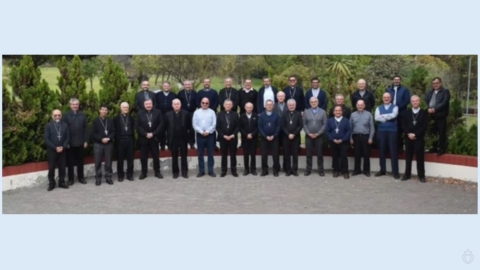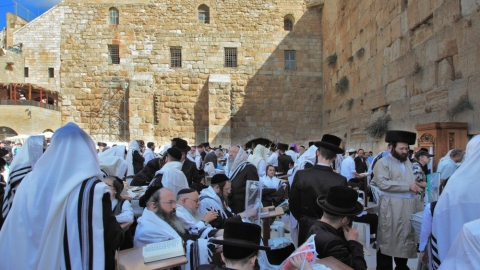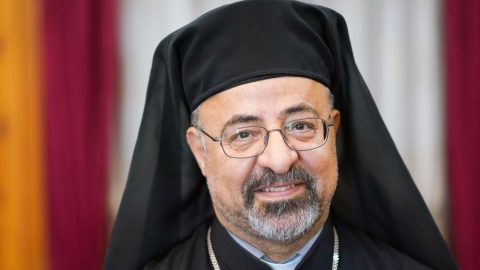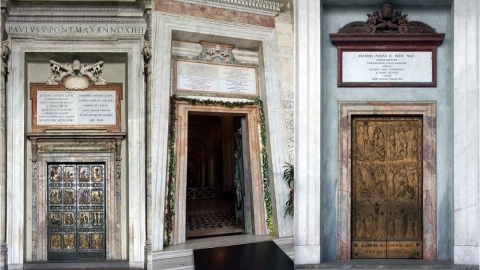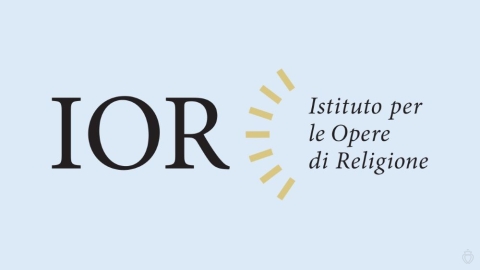Ukraine: Criticism of the Holy See Grows

] Oleksandra Matviïchuk and Archbishop Borys Gudziak
Here is a new, and not so subtle, dig at the Pope and at Cardinal Matteo Zuppi, one of the most prominent papabili at the moment. It was launched from the Catholic University of Lviv, Ukraine, and consists of an unvarnished criticism of the “pacifism” which has guided the Holy See in its relations with Russia for more than 40 years, incidentally touching on previous pontificates in the process.
It took more than a year of war in Ukraine for a proper critique of Ostpolitik, a term often used to describe the soft-line diplomacy of Cardinal Agostino Casaroli (Secretary of State of the Holy See from 1979 to 1990) toward Soviet Russia (and already singled out by Archbishop Marcel Lefebvre), to once again burst into ecclesiastical debate.
The latest criticism comes in the form of a critical document from the Catholic University of Lviv, one of the most renowned Catholic intellectual centers in the country. Among the signatories are the vice-rector of the University, as well as Archbishop Borys Gudziak, president of the Ukrainian Catholic University and Metropolitan-Archbishop of the Ukrainian Catholic Archeparchy of Philadelphia in the United States, and Oleksandra Matviïchouk, President of the Center for Civil Liberties and Nobel Peace Prize winner in 2022. The text is a “constitutional manifesto” dated June 25, 2023.
The statement exhibits a severe analysis of the “pacifism” which, according to the authors, shows its disastrous effects in the current attitude of the Holy See towards Russia—a text which was written before the recent remarks of the Sovereign Pontiff on “Russian cultural heritage.”
This pacifism has its roots in the pontificate of Pope John Paul II: “At the beginning of the 1980s,” explains the text, “Western Europe saw peace marches organized by Christians flourish. … These marches had a harmful inspiration: the Soviet Union which, being no longer economically able to pursue the arms race, sought to promote a truce and détente.…”
“Many European Christians turned a blind eye to the political calculations behind all this: for them, the Kremlin was a champion of peace and therefore an ally of Christian pacification.” According to the manifesto, “European pacifists do not see the heresy of the official doctrine of the Russian Orthodox Church. Nor do they see the malice of the Kremlin, forgetting this warning from Clausewitz: ‘The invader is always peaceful. He wants to conquer as peacefully as possible.’”
Behind these “European pacifists,” the manifesto seems to target the diplomacy of the Holy See, particularly when the signatories claim to “denounce another important problem, that of symmetry in the presentation of the Russo-Ukrainian war.” It is a “symmetry” echoed by the words of Pope Francis in his assumed choice not to be “binary” in his approach to the conflict.
As for the name of Cardinal Matteo Zuppi, it is not directly cited, but we cannot help but see an allusion to the “pope's envoy for peace,” when the Ukrainian manifesto touches on the Sant'Egidio Community to which the high prelate belongs. Thus, the text explains:
“The Russian-Ukrainian war is radically different, for example, from the military conflict in Mozambique, where the Sant'Egidio Community played an important role as peacekeeper in its time. … [It] cannot be resolved by grand principles. … It is impossible to remain neutral.” It is an allusion which takes on its full meaning when we remember that Cardinal Zuppi played a leading role in the resolution of the war in Mozambique in the 1980s.
And it is a covert criticism which shows, once again, how delicate the role played by one of the most prominent papabili at the moment is. Too much exposure would in fact definitively disqualify the high prelate from potentially succeeding Pope Francis.
(Source : Université de Lviv – FSSPX.Actualités)
Illustration 1 : European Parliament, CC BY 2.0, via Wikimedia Commons
Illustration 2 : Mykola Swarnyk, CC BY-SA 3.0, via Wikimedia Commons
